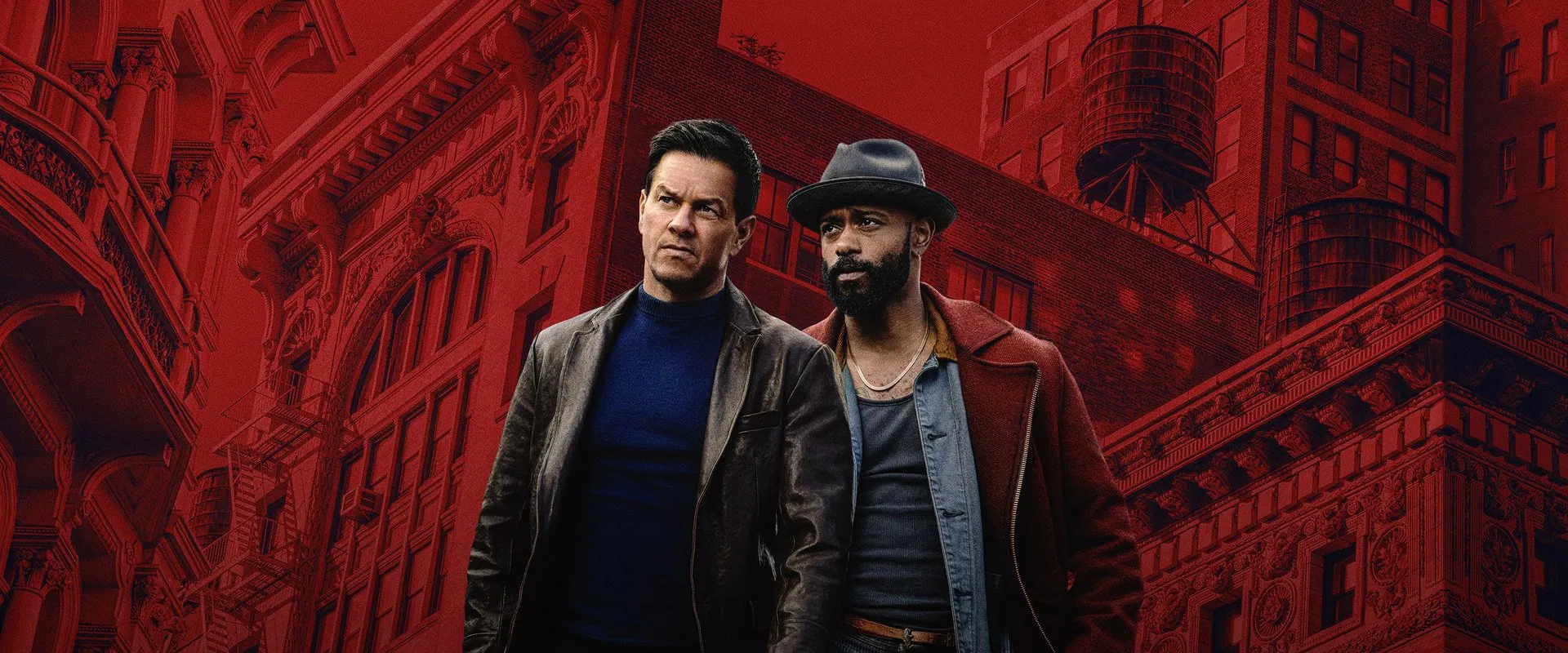Is it possible for a movie to trip over its own cleverness and bounce back up, grinning, clutching a Santa hat in one hand and a sawed-off shotgun in the other? Shane Black seems to think so, bless him—he’s made a career of fusing Christmas lights onto grisly pulp, stapling wisecracks to bodies before the blood dries. With “Play Dirty,” he takes Donald Westlake’s Parker, criminal mastermind, eternal sourpuss, the sort of man who’d rob his grandmother if you left her in a counting room and sends him stumbling through a minefield of Black’s signature goofball banter and Yuletide noir.
What results is a lopsided Christmas heist stuffed with enough narrative feints and double-crosses to make Howard Hawks blush, or roll his eyes. There is a joy in watching this much plot pile up in the corner, like laundry in a sticky-floored motel after a job gone south. One moment you’re watching a racetrack stick-up, the next, Zen (Rosa Salazar, with a transparency to her malice as well as her undergarments) is calmly executing her double-cross, less femme fatale, more Black Widow in an underfunded Marvel entry. When the traitor shows her hand three minutes in, you half expect Parker (Mark Wahlberg, stonefaced and sandblasted, the hood’s answer to a Foreman Grill) to mutter, “Well, that was quick.” The film becomes a carousel of betrayals atop betrayals, none of them quite sticking, like post-it notes fluttering off a corkboard.
So, how do you sustain suspense when, as the saying goes, the butler stabs everyone in the foyer before the canapés have been served? Black’s answer is velocity, he pushes the thing so fast that you barely have time to mourn the absence of character development, or, indeed, coherence. The pleasure is in the whirligig: the racetrack is a powder-keg, the figurehead is a MacGuffin, and the only thing more disposable than the supporting cast is their one-liner dialogue, delivered with a calculated insouciance by a crew of ringers who’d all be upstaged by Groucho Marx at a PTA meeting.
Let’s talk about Wahlberg’s Parker. As hardboiled as an overcooked egg, he stomps through outrageousness with the professional detachment of a man measuring drywall. There’s no poetry to his violence, just efficiency and, occasionally, a chilly blankness that surprises you in a Black film. Gone is the slightly-dazed Affleckian sardonicism of “The Nice Guys”, Wahlberg’s Parker is a machine that’s not programmed for uproariousness. When Marky Mark glowers, you remember there’s still something of the Calvinist in pulp: get the job done, and if anyone jokes, shoot them. The odd-couple marriage of Black’s screwball pyrotechnics and Parker’s clinical brutality is never more apparent than when Mark’s taciturn “let’s do the job” collides head-on with Keegan-Michael Key’s Ed Mackey or LaKeith Stanfield’s Grofield, two wisecracking irritants who seem to have been shipped in from a Shane Black best-of reel.
About those supporting players: they’re a motley crew—there’s the drunk, the squabbling married duo, the dead man who gets avenged, and the comic-relief getaway driver who’d have failed Driver’s Ed in any other universe (“Stan crashed the getaway truck and nearly runs over Grofield” sums up about half the film’s comic momentum). Don’t look for character in these character actors. Black etches them in sharpies: minimalist and, often, indistinguishable from the background noise of gunfire and snark.
And the violence, oh, the violence. It’s there, all right, in buckets. Or more accurately, in a stuttering deluge of lamentable CGI: the bullets fly, the bodies hit the dirt, and the explosions look cheaper than anything in Parker’s duffel bag. It’s the cinematic equivalent of a toy train set with plastic dynamite, no weight, no tension, barely enough consequence for you to believe any of it sticks. The racetrack heist should have been a clockwork showstopper, but it’s all done with ones and zeros and the aftermath of a slashed special-effects budget. When the train finally crashes, it feels more like a pop-up ad than a setpiece.
What keeps “Play Dirty” from crumpling under its own excess, though, is partly nostalgia, the nagging sense that, against all odds, the filmmakers have tried (and only partly succeeded) in honoring the glinting, heartless Parker of Westlake’s novels. Here is a man who’ll kill an unarmed accomplice and call it Thursday; who dispenses vengeance with the casualness of a bartender pouring a drink. The heart of the movie, for what it’s worth, is rendered in shallow relief: Parker’s revenge for the double-crossed Philly Webb, his cruelties to friend and foe alike, his refusal at happiness so absolute it can only end in (unseen) murder, offscreen, one of those gunshots in the night Black loves so much, a cynical ellipsis that wears its setup-for-sequel badge proudly. Resurrection is as inevitable in this universe as a Christmas carol in a Shane Black script.
Does “Play Dirty” reach the dizzy cockeyed heights of “Kiss Kiss Bang Bang” or the sly camaraderie of “The Nice Guys”? Hardly. It’s patchwork, brisk, and, in its best moments, a bit of fun, an easy watch (if you avert your eyes from the digital fireballs and the script’s neglected ambitions). For all its seams and snags, it delivers on its promises: Parker is Parker, the corpses pile up, and nobody gets away clean, least of all the filmmakers. Black remains the master of Christmas chaos, but this one’s a stocking stuffer, a shiny bauble, giddy and faintly empty, tossed onto the pile.
And yet I enjoyed it, in the distracted way one enjoys late-night cable reruns: all jagged edges and familiar faces, just fresh enough to keep you from switching the channel, just bloody enough to remind you of better times. If you want soul or spectacle, look elsewhere. If you want to watch Parker kill, plan, and scowl his way through a noir funhouse built of tricks, traps, and very cheap ornaments, well, Merry Christmas.


